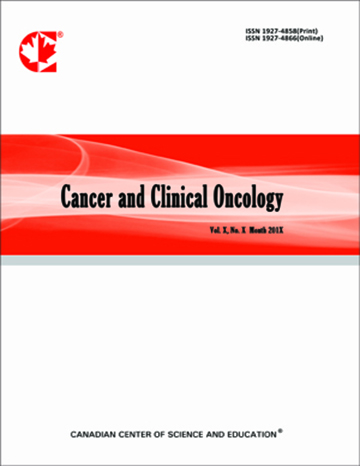Improved Survival of HER2-Positive Metastatic Breast Cancer in Routine Care
- Rudolf Weide
- Stefan Feiten
- Vera Friesenhahn
- Jochen Heymanns
- Kristina Kleboth
- Ulrike Mergenthaler
- Jörg Thomalla
- Christoph van Roye
- Hubert Köppler
Abstract
Purpose: Targeted therapy directed against HER2 has improved the outcome of patients with HER2-positive metastatic breast cancer in prospective clinical trials. No data are available how anti-HER2-therapy has influenced survival of unselected patients with HER2-positive metastatic breast cancer who receive treatment in routine care. Methods: Data of 118 subsequent patients with HER2-positive metastatic breast cancer who were treated in a community-based oncology group practice between 1995 and 2010 were analyzed retrospectively. Results: Median age at initial diagnosis of metastasis was 58 years (33-92). Twenty-two percent were metastasized at diagnosis of breast cancer, seventy-eight percent developed metastases in the course of the disease. Distribution of metastatic sites at initial diagnosis of metastasis was: 23% bone, 58% visceral, 5% CNS, 10% lymph nodes, 4% other. Hormone receptor was positive in 68% and negative in 31%. Palliative treatment consisted of antihormonal therapy in 56%, chemotherapy in 90% and radiotherapy in 50%. Seventy-five percent received anti-HER2-therapy consisting of trastuzumab in 80% and lapatinib in 1%, 19% received trastuzumab + lapatinib sequentially. Twenty-five percent received no anti-HER2-therapy. Median overall survival since initial diagnosis of metastasis was 34 months (0-277+). Conclusion: It could be shown that, compared to historical controls, targeted therapy against HER2 prolongs overall survival of patients with HER2-positive metastatic breast cancer who receive treatment in routine care.
- Full Text:
 PDF
PDF
- DOI:10.5539/cco.v2n1p17
Journal Metrics
Google-based Impact Factor (2018): 3.94
h-index (August 2018): 8
i10-index (August 2018): 6
h5-index (August 2018): N/A
h5-median(August 2018): N/A
(The data was calculated based on Google Scholar Citations. Click Here to Learn More. )
Index
Contact
- Lexie GreyEditorial Assistant
- cco@ccsenet.org
